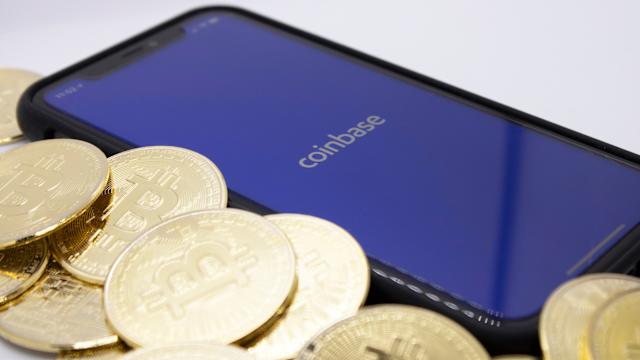Key Takeaways:
- Coinbase has launched a new feature allowing users to borrow up to $100,000 in USDC by using their bitcoin as collateral.
- Loans are processed through the Coinbase app but are serviced by the decentralized finance (DeFi) platform Morpho, which operates on Coinbase’s Base blockchain.
- This option gives users access to funds without selling their bitcoin, which may help avoid triggering taxes — but it also comes with the risk of liquidation if bitcoin’s value drops.
- If your loan-to-value ratio reaches 86% due to market swings or interest accumulation, Coinbase may automatically liquidate some of your bitcoin to cover the loan.
Coinbase Now Lets You Borrow Money Using Bitcoin as Collateral
If you’re a Coinbase user, there’s a new way to access cash without selling your crypto. The exchange has introduced a service that allows users to take out a loan using their bitcoin holdings as collateral. This loan is issued in USD Coin (USDC), a stablecoin pegged to the U.S. dollar.
According to Coinbase, this option can help users cover large expenses like car purchases or down payments on homes. And since USDC can be converted to U.S. dollars at a 1:1 ratio for free, it adds flexibility to how you use the borrowed money.
Though the loan can be initiated from the Coinbase app, it’s actually handled by Morpho, a DeFi lending platform. Morpho operates on the Base blockchain, a layer-2 network developed by Coinbase.
How Does Borrowing Against Bitcoin Work on Coinbase?
Coinbase’s new service is available to users in the U.S., except for those in New York due to regulatory restrictions. The way it works is simple: instead of using your credit history or income to determine your loan eligibility, you offer your bitcoin as collateral.
You can borrow up to $100,000 in USDC, depending on how much bitcoin you hold. The interest rate isn’t fixed; it varies with the market and is clearly displayed before you complete the loan. There are no scheduled repayments—you can choose when and how much to repay, whether in full or in part.
Once you decide to use your bitcoin as collateral, Coinbase converts it into Coinbase Wrapped Bitcoin (cbBTC), a token that represents your bitcoin on the Base blockchain. This cbBTC is then locked into a Morpho smart contract to secure the loan.
Should You Consider Borrowing Against Your Bitcoin?
Using bitcoin as collateral to take out loans isn’t a new concept—it’s been a common feature in both centralized crypto lenders and DeFi platforms. This type of borrowing has its advantages, but it’s not without serious risks.
For instance, if you sell bitcoin for cash, you’ll likely owe capital gains tax. Taking out a loan against your bitcoin can help you access funds without triggering a taxable event.
However, some experts warn that converting BTC to cbBTC might still count as a taxable transaction, depending on how tax authorities classify the move.
Another major concern is price volatility. Bitcoin is a highly volatile asset, and if its value drops sharply, the loan could become undercollateralized. That means Coinbase could liquidate some of your bitcoin to cover the loan.
Pros of Using Bitcoin as Loan Collateral:
- Access funds without selling your crypto: This is ideal for people who believe bitcoin will grow in value and don’t want to sell it.
- No credit checks required: Your borrowing power depends only on your crypto holdings, not your credit score.
- Flexible repayment: There are no fixed monthly payments—you choose how and when to repay the loan.
Risks of Using Bitcoin as Loan Collateral:
- Liquidation risk: Your loan is measured by a loan-to-value (LTV) ratio. For example, borrowing $500 against $1,000 worth of bitcoin gives you a 50% LTV. If that LTV rises to 86% due to falling bitcoin prices or accrued interest, Coinbase will liquidate part of your bitcoin to repay the loan, along with a penalty fee.
- Loss of crypto holdings: In extreme market downturns, you could lose a significant portion of your bitcoin. This is not just a theoretical risk—it happened in 2022 when companies like BlockFi and Genesis collapsed, freezing users’ assets.
- Smart contract vulnerabilities: While using a DeFi platform like Morpho offers more transparency than traditional lenders, it also exposes users to potential bugs or exploits in the smart contracts. Several DeFi platforms in the past have been hacked, resulting in millions of dollars in losses.
Final Thoughts: Is It Worth It?
Borrowing against your bitcoin on Coinbase can be a useful way to unlock liquidity without selling your crypto, especially if you’re trying to avoid capital gains taxes or if you believe bitcoin will increase in value. But it’s crucial to understand the risks.
Sudden drops in bitcoin’s value could lead to automatic liquidation of your assets, and any mishandling of smart contracts on Morpho could open the door to loss of funds.
Plus, the tax situation around converting bitcoin to cbBTC isn’t fully clear yet and may vary depending on jurisdiction.
This service might be attractive for crypto-savvy users looking for quick liquidity and who are comfortable navigating both market risk and DeFi platforms.
However, for those new to crypto or uncomfortable with potential asset loss, it may be safer to consider more traditional forms of borrowing.
Join Gen Z New WhatsApp Channel To Stay Updated On time https://whatsapp.com/channel/0029VaWT5gSGufImU8R0DO30


